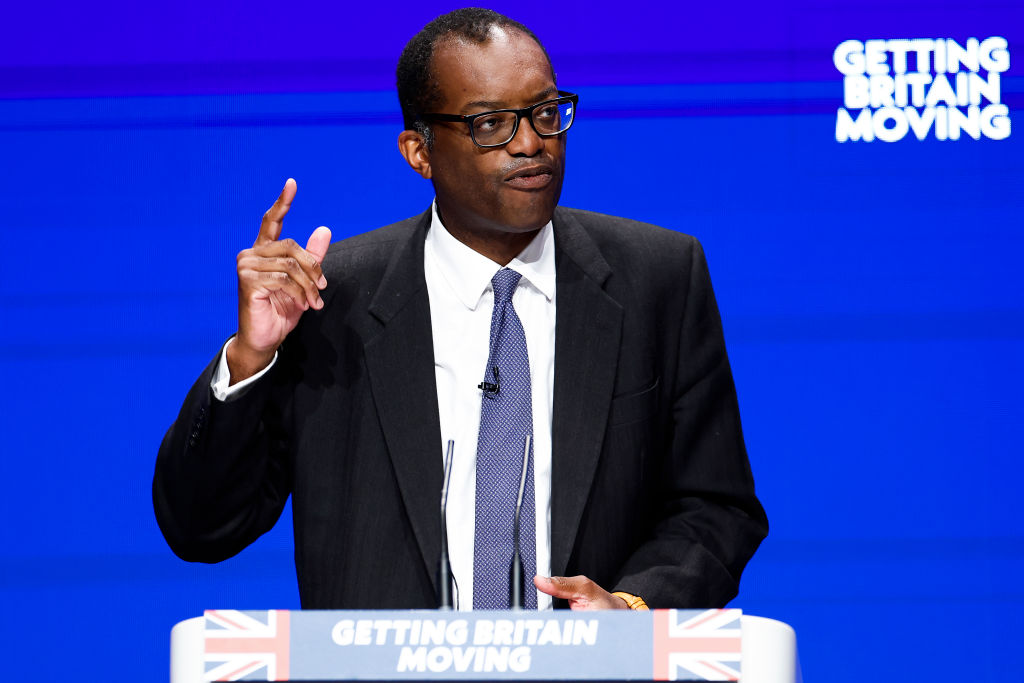You could tell Kwasi Kwarteng was aware of his words and tone as he delivered his Conservative party conference speech to a hall full of Tory members this afternoon. It was a delicate set of circumstances, with him having had to U-turn on his plan to abolish the 45p tax rate only this morning. But perhaps more importantly he learned a lesson after the mini-Budget: his words can move markets. And he’d be loathe to push them into freefall again.
Kwarteng worked hard to compensate for the total lack of lip-service he had paid to fiscal discipline in his mini-Budget. He praised the UK’s status of having the ‘second lowest debt-to-GDP ratio in the G7. He affirmed commitment to ‘strong institution framework,’ insisting on the independence of the Bank of England and the role of the Office for Budget responsibility in the upcoming ‘medium-term fiscal plan’, which would set out a ‘strong fiscal anchor’ to keep debt falling in the medium term.
Kwarteng’s tax cut package is still worth £43 billion, instead of £45 billion
While the Chancellor had to stuff his mini-Budget rabbit back into the hat, he made clear this afternoon that his broader plan for growth remains the core of his Treasury’s agenda, committing once again to a 2.5 per cent trend growth rate. But this time, he acknowledged that in order to achieve that growth, the public finances will need to be handled responsibility.
‘There is no path to higher sustainable growth without fiscal responsibility,’ he insisted. ‘Conservatives have always known this, and we know it still’ – a direct response to criticism that the government had (wrongly) assumed it could borrow on the cheap for all its spending plans.
The U-turn seems to have had a small but noticeable impact on market stability, with the pound rising to $1.13 while ten-year gilt yields fell to just under 4 per cent, having hit a peak of 4.5 per cent last week when the government was doubling down on its agenda.
It is unlikely to be the revenue raised from the top tax rate that has boosted market confidence: the 45p rate brings in roughly £2 billion, making Kwarteng’s tax cut package still worth £43 billion, instead of £45 billion. What it does signal, however, is acknowledgment on the government’s part that its decision to announce a far bigger tax-cutting agenda than anyone expected (without announcing how it might be funded) was an error.
The decision to U-turn on the top tax rate was driven by political opposition within the Tory party, as Katy Balls details here. There’s a reason the 45p rate will stay, rather than changing back IR35 rules for freelancers or postponing the 1p tax cut to the basic rate – and that comes down to political viability. But with the holes in the public finances still much larger than they were before the mini-Budget, it might not be enough to convince markets that all is back on track.
For a full list of Spectator Tory conference fringe events, click here







Comments